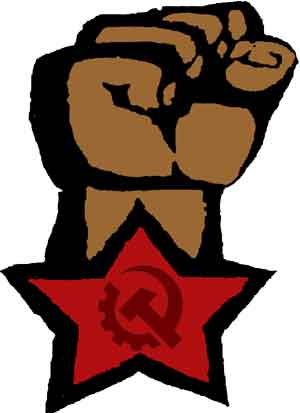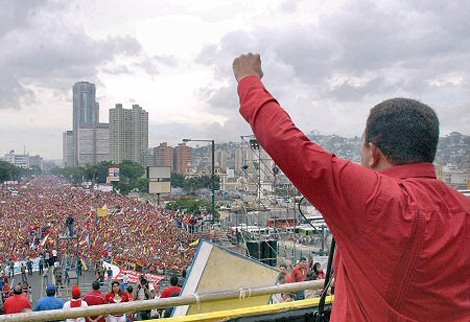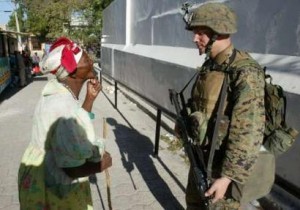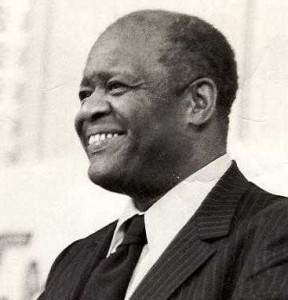 By Henry Winston
By Henry Winston
Chapter 7 from Class, Race and Black Liberation, 1977, International Publishers Co.
The aspirations of Robert L. Allen, editor of The Black Scholar, are in direct conflict with the aims of Daniel P. Moynihan. Yet, in Reluctant Reformers by Robert Allen, with the collaboration of Pamela P. Allen, and in Ethnicity by Moynihan and Glazer, one finds a parallel treatment of the question of race and class.
Reluctant Reformers (Howard University Press, Washington, D.C., 1974)—subtitled “The Impact of Racism on American Social Reform Movements,” and spanning the years from 1776 to the present—has a fundamental flaw: In attempting to portray the impact of racism on movements for social change, the author deemphasizes the impact of these multi-racial movements on this country’s history. This in turn leads to deemphasizing the impact of Frederick Douglass, Karl Marx and W.E.B. Du Bois on past and present struggles against oppression and exploitation. Such a view of the movements for social change flows from a failure to recognize the objective laws of class struggle and the capitalist class as the source of racism and therefore results in a failure to differentiate among the changing class forces involved in these movements during different periods of this country’s history.
As a result, the book’s thrust is not directed toward overcoming racism’s impact on the people’s struggles; instead, it projects a defeatist estimate of the people’s ability to struggle. This is apparent in the very concept of “reluctant reformers,” which in itself implies an inverted form of voluntarism. Contrary to the “thought of Mao,” history can neither be “pushed” nor “stopped” by the will of individuals or groups, without regard to the specific mode of production in a given society and the contradictions that give rise to the struggle to resolve them.
The many-sided and historically changing forms of “reluctance”— whose core today consists of racism and anti-Communism—can retard but not halt the forward thrust of the multi-racial international working class, including its contingent in the United States: “Reluctance” could not stop the struggle leading to the “irresistable conflict” that abolished slavery, nor can “reluctance” halt the anti-monopoly struggle.
The source of Allen’s defeatist attitude toward the anti-racist struggle and thus toward movements for social change as a whole, is revealed in the following:
Of course, if the locus of racism is white society, then one must conclude that some kind of basic change must be made in this society if racism is to be eliminated. This is not to suggest that white society is somehow monolithic or static; on the contrary, numerous strata and competing interest groups exist, and changes of greater or lesser extent are almost constantly occurring. (Reluctant Reformers, p. 5.Emphasis added—H.W.)
To speak of a “white society” fits in with the “two societies” concept projected in the sixties. This idea was promoted from both a “radical” and a “liberal” (via the “Kerner Report”) standpoint, which portrayed Blacks as forming an internal colony in the United States. But Black people are discriminated against and suffer de facto segregation within the single U.S. capitalist economy. Both Black and white are locked into one society dominated by corporate monopoly. To imply the division of this country into two societies obscures its real division into two basic classes, the white monopolist minority and the multi-racial working class.
By situating the “locus of racism” in a generalized “white society,” Allen in effect denies that racism originates in and is perpetuated by the class interests of monopoly. Via a theory of “interest groups,” Allen attempts to back up his portrayal of the United States as a society dominated by “classless” whites instead of white monopoly capitalists. Although Allen asserts “white society” should not be regarded as “monolithic,” he confirms that the term is without class meaning by defining it as consisting of “numerous strata and competing interest groups.”
Further, to speak merely of “interest groups” is to fall within the orbit of Moynihan’s “ethnicity” strategy, which denies the fundamental contradiction between monopoly and the multi-racial working class, the Black and other oppressed minorities and the majority of the population.
According to Moynihan, each “ethnic” group has its own demands, all presumably of equal importance, thus denying the special racist oppression of Blacks. And the logic of Allen’s “interest group” concept also leads to a denial of class exploitation as the source of oppression of Black and other minorities.
Moynihan’s ideology promotes the primacy of “ethnicity” while simultaneously suggesting that the primacy of race links all white “ethnic” groups against non-whites, who are depicted as a competitive threat. And the “interest groups” concept objectively reinforces this ideology: Allen as well as Moynihan denies that monopoly is the enemy of the multi-racial working class and the masses of the people.
According to both Moynihan and Allen, each “ethnic” or “interest group” has a stake only in its “own” particular interest which can presumably be advanced only in opposition to the needs of other “ethnic groups” and “interest groups.” Such theories encourage Black and white to regard each other as the enemy; in particular, they influence white workers to accept racism—and even fight to maintain it.
What has happened in South Boston symbolizes the logic of these concepts: An “ethnic” group is made to feel deprived by the anti-racist struggle and thus white workers are misled into helping to forge the chains of their own impoverishment.
The “ethnicity” and “group interest” theories reverse reality for both Black and white, portraying the anti-racist struggle/ not racism, as contradicting the interests of the white masses. It would be hard to think of a more effective way to advance the interests of racist monopoly!
Who Has A ‘Stake’ in Racism?
In his article on the Pan-African Congress, Lerone Bennett polemizes against Marxists and progressives who place anti-racist struggle at the core of the fight for anti-imperialist unity. In his book on social movements in the United States, Robert Allen polemizes against Marxists and progressives who see the need for combining the self- action of Blacks with working-class struggles in the anti-racist fight at home. In fact, he goes so far as to deny the basis for unity of the multi-racial working class—alleging that white workers have a “stake” in racism. Asserting that the Communist Party has had an “oversimplified view of racism, and the history of racial antagonism,” he states: ‘
If racism was simply a device used by the capitalist ruling class to divide the workers, then it followed that the workers have no material stake in the maintenance of racism. Once apprised of their true interests the workers could be expected to join the forces opposing racism. Such has not yet been the case, as the history of the labor movement amply illustrates. Yet Communist writers insisted upon regarding the white working class as the bearer of true enlightenment and fraternity; at the very minimum they contended that only if the workers would accept Marxism-Leninism then racial antagonisms would fade away. (Allen, op. cit., p. 224. Emphasis in the original.)
In this statement Allen attempts to “settle” the race/class question by “establishing” the primacy of race: If white workers have a “material stake” in racism, it would mean there is no antagonistic contradiction between them and the white monopolists (that is, their stake would be in the color of their skin).
Of course, U.S. capitalism through all stages of its development has perpetuated inequality between Black and white masses. But in order to do so it has had to perpetuate the illusion, from slavery to the present, that the white exploited have a “material stake” in Black oppression. And the survivals of racist “advantages,”—originating in the slave system—still lend credibility to the racist-fostered illusion that white workers on the assembly lines and in the unemployed lines have a “material stake” in the different degree to which monopoly exploits them as compared to Black workers.
In reality, white as well as Black workers have a “material stake” in eradicating racism. To assert that white workers have a “material stake” in racism is to profoundly exaggerate monopoly’s ability to sustain this illusion—particularly in the face of the deepening general crisis of capitalism. Such a concept is based on an overestimation of the strength of imperialism, and consequently an underestimation—in fact, a denial—of the intensifying contradiction between monopoly and the working class as a whole—Black, white, Chicano, Puerto Rican, Asian and Native American Indian.
To argue that whites have a “material stake” in racism is to say that 180 million whites, the overwhelming majority, have no “material stake” in economic and social progress, which would mean there is no perspective for fundamental change.
The Black minority alone could not defeat the slave power. That was achieved via a strategy combining the interests of those forces and classes with a stake in victory over the slavocracy. And today the Black minority cannot by itself defeat the monopoly oppressors. What is required is not a go-it-alone policy for Blacks but an independent strategy for Black liberation as part of a wider anti-monopoly strategy—combining all those with a stake in the defeat of corporate monopoly into a great people’s coalition. And in the perspective for such a coalition, one cannot overlook the revolutionary implications of the proletarianization of the majority of the multi-racial masses.
If one says white workers have a “material stake” in racism, one implies they have a “material stake” in monopoly instead of its defeat. In other words, such a concept denies the common interest of Black and white workers in class unity and a broad anti-monopoly strategy. After all, one cannot expect people to fight against racism if they have a “material stake” in it. Thus, Allen’s views would at best promote reliance on “gradualism”—tokenist reformism—the direct opposite of a perspective for ending the triple oppression of Blacks and other oppressed minorities.
In saying that white workers have a “material stake” in racism, Allen is not only denying the possibility of a mass alternative to monopoly. He is also denying the fundamental class contradiction between the monopoly ruling class and the working class, that is, he is denying the class struggle. In viewing racism as divorced from monopoly’s class interests, he fails to see that racism contradicts the common stake all workers have in the class struggle against their common enemy. The concept of white workers having a “material stake” in racism is a noil-struggle approach, contradicting the cause of Black liberation as well as the needs of all those seeking solutions to the crisis confronting them.
Of course. Communists would regard the infinitely complex anti- racist struggle as a very simple matter indeed if—as Allen alleges—they considered it merely a matter of “apprising” the white workers of “their true interests” in order for them to “join the forces opposing racism.” Standing aside and waiting for the workers to “accept Marxism- Leninism” would, obviously, be helpful only to monopoly and its divide-and-rule strategy.
What is required to achieve class unity is a fight to wipe out every form of material and social inequality. And white workers have a heavy, special responsibility in this struggle because it is they who have been infected by racism and are consequently its “bearers” within the multi-racial working class. Marxism-Leninism is a guide to, not a substitute for, the anti-racist struggle and therefore a guide also to the “fraternity” of the working class. And as this struggle for class unity advances, “enlightenment” begins to replace racism in the minds of those who have been its “bearers.” Further, the Communist Party is the only organization requiring, as a condition of membership, that whites accept and act in accordance with the Marxist-Leninist principle of the special responsibility of white workers in the anti-racist struggle.
One must recognize that to dismiss this Marxist-Leninist approach is to leave the anti-racist struggle to Black people—which would make it a “go-it-alone” fight of the Black minority against a “white society” that includes both the white masses and the white corporate minority.
Illusion and Reality
To take the position that white workers have a “material stake” in sustaining instead of fighting against racist inequality is to support the monopolist enemy that perpetuates this illusion. To claim white workers have a “material stake” in maintaining inequalities between Black and white income—a view that fits in with the class collaborationist policies of the Meanys and their right social democratic supporters—is to say white workers have no stake in overcoming their own unemployment, their own diminishing quality of life and poverty.
It is decisive to recognize that neither the depressed levels for white workers nor the still more depressed levels of poverty and unemployment for Black workers can be effectively challenged without an intensifying struggle for unity of the multi-racial working class.
The situation of Black workers is graphically described in the NAACP’s annual report, published in January 1976: “It is now clear that the slow and hard gains made by black wage earners during the past quarter of a century were fragile and temporary/’ states the report’s employment section, written by Herbert Hill, the association’s National Labor Director.
Continuing, the report says:
In every category of measurement—unemployment rates, duration of joblessness, in earnings and in labor force entry of young workers—the black community is being forced back into patterns that were commonplace during the Great Depression of the 1930’s.
While government figures place unemployment rates for whites at 7.6 percent and 14.1 percent for Blacks, the NAACP reports a “truer picture of 13.6 percent for whites and 25.5 for Blacks.” And in the 25 major areas of Black urban population, these figures rise to 30 percent for adults and 40 percent for teenagers. If these trends continue, the report asserts, “the black worker can never catch up to the white worker in this country.” The report adds:
Discrimination in employment is not the result of random acts of malevolence; it does not usually occur because of individual bigotry, but rather is the consequence of systematic institutionalized patterns that are rooted in the society.
There is no getting around the fact that the trends described in the NAACP report accentuate the urgency for unity of the multi-racial working class and for its participation in forging an independent political trend, the only alternative to the trend monopoly’s two parties impose on the oppressed and exploited.
As part of the struggle for such an alternative, mutual trust and united action must be won between the various components of the multi-racial working class. And achieving these requisites is in the first place the obligation of white workers, who must support the fight against inequality in wages, conditions and opportunities. This is not a matter of abstract morality, but of working-class solidarity, whose source lies in recognition of the imperatives of class struggle. It is only in class unity that the fight for material conditions and quality of life for all workers— Black, white, Puerto Rican, Chicano, Asian and Native American Indian—can be advanced.
The white workers’ illusion of their “material stake” in racist inequalities is given circumstantial credibility by the widening gap between themselves and Black workers in income and employment. This gap, which creates a contradiction within the working class, is a reality. But that white workers have a “material stake” in maintaining this capitalist-enforced contradiction is an illusion. Illusions have nothing in common with Marxism-Leninism, but they are reinforced by Maoism, which substitutes subjective opinions for realities in the class struggle.
Contrary to Mao’s writings on “the correct handling of contradictions among the people,” the contradictions in the working class cannot be interpreted as antagonistic contradictions between class or racial enemies. To claim white workers have a “material stake” in inequality is to fuel monopoly’s racist lie that an antagonistic contradiction exists between Black and white workers, which of course diverts the struggle from the antagonistic contradictions between the working class as a whole and monopoly.
The contradictions within the ranks of the working class and masses are of a totally different character from the antagonistic class contradiction between the working class and the monopoly capitalist class. The contradictions among the people are non-antagonistic and can be resolved by a strategy advancing the special struggle against racist division and inequality—a strategy recognizing that the interests of each component of the working class, and of the Black and other oppressed peoples, can be advanced only through a united struggle against the ruling class.
Monopoly ceaselessly generates racist ideology to—as Marx put it—”deform” the class struggle. The essence of racist strategy is to create the illusion in the minds of both Black and white workers that the differential in their levels of existence does not arise from capitalism. Among whites, this strategy perpetuates the illusion that the Black people’s inferior standard of living results from the inherent inferiority of people with dark skins. Among Blacks, this strategy creates the parallel illusion that racism is inherent in the white masses—not in monopoly control of the economy and government.
What “Shapes” Racism
The United States was born in anti-colonial struggle, and its present course of development is today in sharper contrast than ever to that of its birth. Today’s racism and inequality mock this country’s birth cries of “liberty” and “equality.”
U.S. monopoly has made this country not only the internal center of racist oppression, but also the principal upholder of classical and neo-colonialist plunder in southern Africa. U.S. imperialism—which has apartheid South Africa as its military surrogate in Angola—is now recognized everywhere as the central mainstay of racism, reaction and repression at home and internationally.
Yet many white liberals are among those fostering the illusion that the inferior status of Blacks is determined not by the class interests of those controlling the system but by the difference in skin color. This view is expressed in typical form by Tom Wicker, associate editor of The New York Times, who asserts that “the instinctive white man’s reaction to the color black sets the nature of the white-black relationship.” (A Time to Die, Quadrangle-NYT Book Co., New York, 1975, p. 148)
Robert Allen comes very close to Wicker’s view when, in his book, Reluctant Reformers, he asserts that racism has become a “social- psychological force, shaping and directing behavior, not merely reflecting it.” (Allen, op. cit., p. 224)
Of course, it is true that behavior can be “shaped” by society. But scientific social analysis—Marxism-Leninism—shows that racist “behavior” is not “shaped” by “classless” psychological factors but by the monopoly ruling class.
Both Wicker and Allen are saying the source of racism lies in white reaction to “the color black.” To take this position in any of its varieties is to deny that the “white-black relationship” is “set” by capitalism’s material stake in racial dissension. Marx pointed this out when he said the exploiting class will do all in its power to “disfigure” the class struggle by fomenting racial conflict. To claim the “white-black relationship” is determined by instinctive “social-psychological” responses—with an independent, self-perpetuating existence apart from the social system—is to take the ruling class off the hook for perpetuating this “disfigurement” of the working-class struggle.
Certainly, racism is a “social-psychological force” polluting the nation! But Allen—not just in one quote, but throughout his book— parallels Wicker’s conception of the “white-black relationship” as unrelated to monopoly control of the dominant culture, whose core is racism.
Allen shifts responsibility for the source of racism from monopoly to white workers. He states, for example, that Communists see racism as “a device used by the capitalist class to divide the workers. . . .” By oversimplifying the Communist position—an ideology with all its ramifications cannot be termed a mere “device”—he can dismiss the ever-intensifying role the capitalist class has assigned racism in its economic, political, educational and cultural policies through each stage of its history. On the other hand, he makes every effort to reinforce the idea that white workers have a “material stake” in sustaining racism and in order to do so makes no distinction between the effect of illusion and reality in shaping white workers’ attitudes.
When Allen argues that Communists fail to see racism as having its own, self-perpetuating “psychological” existence, he is advancing a Hegelian reversal of reality: Such a concept of racism conceals the fact that the dominant culture in a particular social system is inseparable from the class in power. This characteristic of Allen’s concept is not altered by his frequent but abstract references to the capitalist system.
Under capitalism, the dominant culture does not originate with the class operating the means of production. This dominant culture is determined by the class that owns the means of production, and it is generated by the superstructure through which this class controls the state and its agencies, and the mass media.
Today, when racism is widely recognized as institutional, it seems strangely out-of-date to attribute to it either an independent existence or assert that it can be perpetuated outside of the rule of monopoly- controlled institutions.
Yet Allen’s concept of racism oscillates between these two poles: at one end, he sees it as having an independent existence; at the other, he sees a source for it—the white workers’ presumed “material stake” in racism. But racism does not originate apart from the social system itself, nor does it originate within the working class, neither at the point of production nor in workers’ homes. On the contrary, it is directed through the superstructure to the workers at the point of production, in their homes and in the schools they attended.
Allen’s concepts of racism ignore the nature of the production of surplus value—the source of capitalist profit—which places the capitalist class’s interest in racism in contradiction to the interests of the working class. It is the capitalist drive to maximize the unpaid and minimize the paid portions of the value produced by the working class that generates the class struggle. In this constantly spiraling, constantly intensifying struggle, only the monopolists have a material stake in racism (and they have never been known to be passive when their interests are at stake!).
Those who say white workers have a “material stake” in racism draw this conclusion from the premise that the interests of white capitalists and the white workers are identical.
The minuscule white corporate minority controlling the social means of production cannot compete with a unified working class. In this period of the general crisis and decline of capitalism, monopoly’s power is only as great as the divisions in the working class—the result of racism and anti-Communism.
Allen’s New Theory of “Ultra-Imperialism”
In a further attempt to bolster his thesis of a “material stake” for white workers in racism. Allen avails himself of a quotation from Lenin concerning oppressed nations and peoples as a source of superprofits for imperialism, part of which is used to create the basis for opportunism, of which racism and anti-Communism are the most divisive forms among sections of the workers in imperialist nations.
“Lenin warned that imperialism,” Allen writes, tends to “create privileged sections . . . among the workers, and to detach them from the broad masses of the proletariat.” (Reluctant Reformers, p. 211. Deletions in quote from Lenin are Allen’s—H.W.)
From the quotation. Allen draws these conclusions:
Thus, the resulting racism and chauvinism among white workers were much more than mere diversionary tactics introduced by conniving capitalists to divide the world working class; on the contrary, these ideological manifestations were firmly grounded in the dynamics of imperialist development. Consequently, Lenin insisted that “the fight against imperialism is a sham and humbug unless it is inseparably bound up with the fight against opportunism.” (Ibid., p. 211. Emphasis added—H.W.)
At first glance. Allen’s conclusions may appear to have a “Marxist” ring. Closer examination, however, reveals them to be in conflict with a Marxist-Leninist analysis of both the “dynamics of imperialist development” and the scope of monopoly’s social, economic and political strategy in class struggle at home and against the colonial liberation struggles in Africa and elsewhere.
First, one must question Allen’s understanding of the most elementary capitalist behavior: If the imperialists do not have an overwhelming “material stake” in carrying out “diversionary tactics” to “divide the world working class,” why do they use part of their superprofits to bribe sections of the white workers? Why don’t they just keep all of the superprofits for themselves?
Further, one cannot ignore, as Allen does, the role of the state in mobilizing material and ideological resources to bolster imperialism’s unstable objective basis for “detaching” segments of the workers from unity with their class, that is, for atomizing the working class into “ethnic” and “interest groups,” and for imposing racist, class- collaborationist policies on the labor movement.
Allen cites Lenin in a way to make it seem that Lenin’s views and his own coincide on the question of opportunism. At the same time, however. Allen argues that racism has an independent existence apart from class, while Lenin regarded racism and all other forms of opportunism, including anti-Communism, as class weapons of the exploiters.
Allen sees all white workers as having a “material stake” in racism—but not the imperialists. This is a strange logic! Marxism- Leninism, however, polemizes not against the masses of workers but against the corruption of a privileged sector of the working class, and against the influence of racism, anti-Communism and all forms of opportunism wherever their poison spreads. Far from holding that white workers have a “material stake” in racism, Marxism-Leninism shows that racism is an obstacle to class unity and that white as well as Black workers have a “material stake” in removing this obstacle to progress.
Moreover, Allen not only argues that racism originates with the workers at the point of production instead of with the capitalist class and its drive for profits; he also insists that workers of an oppressor nation have a “material stake” in the oppression of other nations and colonies.
But Marx, Engels and Lenin revealed that the workers of an oppressor nation can win their liberation only if they recognize their stake in supporting the liberation struggles of every people oppressed by their “own” ruling class. This is why Marxist-Leninists recognize the struggle against opportunism—and racism and anti-Communism are its sharpest forms—as the pre-condition for the unity of the multi-racial U.S. working class and its allies at home and internationally.
Once when Lenin was asked what he would “add” to Marx, he replied that in the context of the imperialist stage of capitalism, he would apply the essence of Marxism in Marx’s slogan “Workers of the World Unite” and the resulting slogan would then proclaim, “Workers and Oppressed Peoples of the World Unite.” Unite against what? Lenin urges unity against imperialism. Therefore Lenin asserts that it is not the workers but the imperialists who have a stake in oppression.
Allen not only underestimates the scope of monopoly’s investment in “diversionary tactics” at home but internationally as well: The neo-colonialists’ use of superprofits to promote all varieties of opportunism—particularly outright betrayal—in “third world” countries is a central aspect of their strategy to uphold their far from “firmly grounded” positions. And U.S. imperialism’s cultivation of national treason also includes the investment of tens of millions of dollars to carry out “diversionary tactics” in NATO countries, as recent events in Portugal and Italy attest.
A crass assertion of this strategy in regard to the “third world” took place in January 1976, when Moynihan announced—via the “leaking” of a cable to U.S. embassies—that the United States’ “basic foreign policy goal” is “breaking up the massive blocs of nations, mostly new nations.” Moynihan stated that U.S. “aid” would go to reward those who acquiesced to neo-colonialist policies, and would be denied to those who dared maintain their independence. Outlining how this economic and political warfare would be carried out against the OAU and “Group of 77” non-aligned countries, Moynihan declared that their “bloc-like unity” could not last because “maintaining solid ranks was simply too expensive for too many members.” Shortly after the contents of this cable appeared on front pages throughout the world/ Ford and Kissinger announced that Moynihan was enunciating official U.S. policy. After Moynihan’s resignation. Ford reaffirmed his support of the racist policies proclaimed by Moynihan in the United Nations.
To give credence to his thesis that racism and chauvinism are “firmly grounded” in the “dynamics” of imperialism. Allen again calls upon Lenin. Allen writes: “Lenin insisted that ‘the fight against imperialism is a sham and humbug unless it is inseparably bound up with the fight against opportunism.’ ” (Ibid., p. 211)
Unfortunately, Allen takes Lenin’s statement out of context, thus turning it against Leninism. If one reads what comes just before the comment Allen cites/ one learns Lenin was polemizing against the “sham” and “humbug” of those who undermine the fight against opportunism by underestimating the contradictions within imperialism. In the preceding sentence Lenin pointed out that “the extraordinary rapidity and the particularly revolting character of the development of opportunism is by no means a guarantee that its victory will be durable.” (V. I. Lenin, Imperialism: The Highest Stage of Capitalism, New York, International Publishers, 1939, p. 126. Emphasis added—H.W.)
In quoting Lenin out of context. Allen gives the impression Leninism upholds instead of contradicts the idea that white workers have a “material stake” in racism and chauvinism. Only if white workers had a “material stake” in racism and all forms of opportunism—instead of a “material stake” in the struggle against them—would it be possible to back up the claim that racism and chauvinism are “Firmly grounded in the dynamics of imperialist development.”
What Allen has developed is a theory of acceptance of—not struggle against—opportunism. In advancing such a thesis, he removes opportunism from the “dynamics” of the international class and anti- colonial liberation struggles—treating it as if it were immune to the impact of these sharpening battles. Further, he ignores the central contradiction between advancing socialism and declining capitalism, and the fact that the class, national and anti-colonial struggle merge in this era with the world transition to socialism.
In discussing imperialism in his polemics with Karl Kautsky, Lenin pointed out that a definition cannot “embrace all the concatenations of a phenomenon in its full development.” (Ibid., p. 89)
And when Allen asserts that opportunism is “firmly grounded” in the “dynamics of imperialist development,” he is most certainly overlooking “the concatenations” of imperialism in its general crisis, which includes the anti-imperialist struggle and makes it infinitely less “firmly grounded” than at any time in its history. Allen’s concept, in fact, resembles right social democratic views on imperialism against which Lenin waged an irreconcilable struggle. Specifically, the idea of a “firmly grounded” imperialism suggests a crypto-Kautskian concept of “ultra-imperialism” that, as Lenin wrote, “detaches the politics of imperialism from its economics.” (Ibid., p. 92)
Kautsky and his followers, underestimating the contradictions of imperialism, failed to comprehend the political and social effects of the increasing unevenness in capitalist development. On the consequences of Kautsky’s view, Lenin wrote:
Kautskv’s theoretical critique of imperialism has nothing in common with Marxism and serves only as a preamble to propaganda for peace and unity with the opportunists and the social-chauvinists, precisely for the reason that it evades and obscures the very profound and fundamental contradictions of imperialism. (Ibid., p. 117)
While Kautsky anticipated an era of “ultra-imperialism,” Allen implies an era of ultra-neo-colonialism—emerging from a “firmly grounded” imperialism successfully extending its strategy against the “third world,” the socialist countries and the working classes and oppressed peoples in the capitalist countries.
But present-day imperialism is even less “firmly grounded” than imperialism in Lenin’s time; it is neither the enduring system conceived by Kautsky and his right social democratic followers, nor is it the “paper tiger” portrayed by the Maoist “left” face of social democracy—at a time when Maoism had not yet openly joined with right social democracy in attempting to uphold imperialism’s unstable positions in Africa and throughout the world.
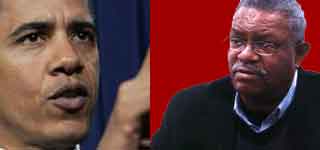 President Barack Obama’s State of the Union address this past week generated international headlines as well as many responses.
President Barack Obama’s State of the Union address this past week generated international headlines as well as many responses.



